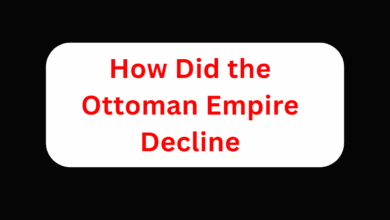Why Did Ancient Egypt Become So Powerful

Ancient Egypt is one of the most famous civilizations in history. For thousands of years, it stood strong along the Nile River in North Africa. The Egyptians built huge pyramids, temples, and statues that still amaze the world today. They created writing systems, developed farming techniques, and had a rich culture of art and religion.
But what made Ancient Egypt so powerful How did a civilization in the desert grow into one of the strongest empires of its time In this article, we will explore the main reasons behind the power of Ancient Egypt in very simple words.
The Gift of the Nile River
The first and most important reason was the Nile River. Every year, the Nile flooded and left behind rich soil. This soil was perfect for farming. While other desert areas were dry, Egypt had food and water because of the Nile.
Farmers grew wheat, barley, vegetables, and fruits. With good harvests, people had enough to eat and to trade. A strong food supply gave stability, which is the base of every powerful civilization.
Strong Farming System
The Egyptians were excellent farmers. They built canals and irrigation systems to control water from the Nile. They learned to store grains in silos to use during dry times.
Because farming was strong, Egypt could support a large population. Extra food also allowed some people to work as builders, soldiers, and craftsmen instead of only farming. This made the society more advanced.
Centralized Government
Egypt became powerful because it had strong rulers called pharaohs. The pharaoh was seen as both a king and a god. People obeyed him completely.
This centralized government made Egypt stable. The pharaoh collected taxes, organized farming, led the army, and ordered the construction of pyramids and temples. With unity under one ruler, Egypt could grow stronger than its neighbors.
Powerful Army
Egypt also had a strong army. The soldiers protected the land from invaders and expanded the empire into nearby regions. With control over more land, Egypt gained more resources like gold, copper, and valuable stones.
The army also protected trade routes. This gave Egypt wealth and respect among other civilizations.
Religion and Belief
Religion played an important role in Egyptian power. People believed the pharaoh was chosen by the gods. This belief made people loyal and obedient.
Religion also encouraged massive construction projects like pyramids and temples. These projects showed Egypt’s wealth and power to the world.
Skilled Workers and Craftsmen
Egypt had highly skilled workers. They built pyramids, carved statues, painted tombs, and created jewelry. These works were not only beautiful but also showed the empire’s strength.
Skilled craftsmen helped Egypt trade with other regions. Their products were valuable and brought wealth to the kingdom.
Writing and Knowledge
The Egyptians developed one of the earliest writing systems, called hieroglyphics. They used it to record taxes, trade, history, and religious texts.
They also studied mathematics, astronomy, and medicine. With this knowledge, they built advanced structures, predicted floods, and treated illnesses. Education and knowledge made Egypt more advanced than many other civilizations of the time.
Wealth from Trad
Egypt was located in a good position for trade. It connected Africa, the Middle East, and the Mediterranean world. The Nile made transport easy, and the Red Sea opened routes to distant lands.
Egypt traded gold, grain, and papyrus in exchange for wood, silver, and luxury items. Trade increased Egypt’s wealth and power.
Monumental Architecture
The pyramids, temples, and statues of Egypt were not only religious symbols but also signs of power. Building such massive structures showed that Egypt had strong leadership, skilled workers, and great resources.
Other civilizations admired and feared Egypt because of these monuments. Even today, they are a reminder of Egypt’s greatness.
Social Structure and Organization
Egypt had a clear social structure. At the top was the pharaoh, followed by priests, nobles, soldiers, scribes, craftsmen, farmers, and workers. Each group had a role, and this organization kept society stable.
When everyone knew their duty, the empire ran smoothly. This order was one reason why Egypt lasted for thousands of years.
Long Period of Stability
Unlike many civilizations that faced constant invasions, Egypt was protected by deserts, seas, and mountains. These natural barriers kept enemies away for a long time. This allowed Egypt to grow without major interruptions.
With stability, Egypt could focus on farming, building, and culture instead of only fighting wars.
Ancient Egypt became powerful because of many reasons working together. The Nile River gave fertile land and food. Strong farming supported the population. Centralized government under the pharaoh brought unity. A powerful army protected and expanded the empire. Religion created loyalty and inspired monuments. Skilled workers, writing, knowledge, and trade increased wealth. Natural barriers gave stability.
Together, these factors made Egypt one of the strongest and most lasting civilizations in history. Its power was not only in armies and land but also in culture, knowledge, and faith. That is why Ancient Egypt is still remembered today as a symbol of greatness.



